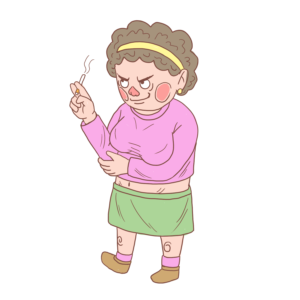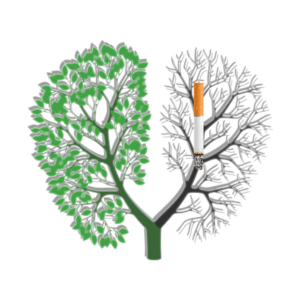Instruções:
Essas aulas de inglês são para alunos intermediários e avançados de inglês como segunda língua. Eles incluem “Ler”, “Ouvir” e “Escrever”. Basta seguir a lição respondendo às perguntas à medida que as encontra.
 Todas as vagas em negrito devem ser traduzidas para seu próprio idioma para ajudar na compreensão do novo vocabulário.
Todas as vagas em negrito devem ser traduzidas para seu próprio idioma para ajudar na compreensão do novo vocabulário.
Please LIKE & SUBSCRIBE my Youtube channel https://www.youtube.com/c/SteveBradeley/videos
The ebook is available to download NOW CLICK HERE >>> GIVING UP SMOKING
Advice on
HOW TO STOP SMOKING
~~~~~~~~~~~~~~~~~~~~~~~
by
~~~
Professor S W Bradeley Bsc (Hons)
Advice on
HOW TO STOP SMOKING
Table of Contents
Introduction to your new life without fags.
Basic concepts for breaking old habits.
Tips for eating to beat the hunger for a fag.
Benefits of meditation and well performed meditative breathing.
Foreword by the author
Let’s begin by posing a straightforward question.
Do you use tobacco in any form?
Professor S W Bradeley Bsc (Hons)
I am an ex-smoker, albeit it I haven’t smoked for over 40 years. Still I clearly remember the amount of times I tried and failed. The addictiveness of nicotine is not demonstrated by how difficult or simple it is for someone to stop using it or maintain abstinence. Stopping this filthy habit is underrated. The one consistent characteristic of smoking addiction is that, no matter how long a person has been without nicotine, just one whiff of a cigarette may make it so easy to forget your promise to yourself to stop. 
Never try to persuade yourself that you weren’t addicted; it’s always an untruth and you know it, and you’re simply and certainly telling yourself lies. You were addicted to nicotine as long as you used it, in whatever form, and you likely still are. How many times did you ask someone, “How many do you smoke a day?” and they say, ” only a couple, but I could stop at any time I want to.” Are they trying to kid you or themselves? They are addicted but don’t want to admit it. Just maybe, the first step to giving up is admitting that you have a problem.
Former smokers develop subclinical addictions. What is a subclinical condition? According to Google and after a quick search you will be presented with this definition:
“Subclinical disease: An illness that is staying below the surface of clinical detection. A subclinical disease has no recognizable clinical findings. It is distinct from a clinical disease, which has signs and symptoms that can be recognized.”
You should keep it that way by quitting completely and now whilst the word ‘subclinical’ still means subclinical and not clinical! With the help of the knowledge presented here and a little motivation and will, you could stop right away.
Smoking is a challenge to stop, there is no doubt about that and after you do, your body will struggle to recover. It will take years to clean up the mess. I sincerely hope you find this ebook inspiring enough to start you on your way. You know, I went cold turkey many, many times before I finally quit. One of the memories that are etched on my mind is the amount of times I lied to people about stopping, when I hadn’t. Although it won’t be the whole answer, I hope it will help you to at least think about it.
Chapter 1
Introduction to your new life without fags.
Of course I know that if you are a smoker it can be difficult to quit. I have been there, done that and got the t-shirt. However, if you really want to stop, you will and if the time is right for you, you will. You will gain the willpower to take the initiative. If there is one thing that prevented me from giving up earlier than I actually did, was people pushing me. Push yourself because the last thing you need right now is someone pushing you.
Smoking is not good for anyone, we all know that. Secondhand smoke has been proven to be even worse than smoking directly. For those around you, once you smoke, you damage their health too. Who in their right mind would purposely and deliberately damage their loved ones health? Many people smoke for years, making it difficult to quit. However, you have help and hope, especially if you have wanted to quit for long enough.
The basics of preventing unhealthy living:
Why do people start smoking? Some people start smoking because they think it’s cool and their friends are impressed. They think it makes them look mature or cool. For most it’s simply peer pressure.
Unfortunately, many people start smoking early in life. Unfortunately, many people end up with bronchitis, respiratory problems, cancer and or lung disease. When we were teenagers, we thought it was the best thing to do since all our friends did it. Peer pressure. We may have gotten into the habit by watching parents or grandparents smoke. I remember as a ten year old going to work with my dad to his TV repair shop in Silverdale, Newcastle-Under-Lyme in him Morris 1000 (moggy 1000) van and how it stunk of stale fags. He would wind down his window while smoking and spit phlegm out of the window onto the road. A sure sign he was well on his way to the cancer that eventually killed him. Stupid sod! 
How smoking affects you: No one knows what will happen to you if you don’t quit now. You may have cancer in your mouth, in your lungs, you may have difficulty breathing, a rapid heartbeat, you may have difficulty walking across the room. Many things can happen to you if you don’t give up right now. Of course, I say, “now”. However, it’s a fact, there is a right time for everyone. I won’t be pushing anyone in this short ebook because I know all too well where pushing leads. As in my case on times it lead to a black eye from an angy dad who would have quite literally killed for the next fag he didn’t have. Any recognising these signs?
Ironically, however, some people smoke for years and nothing happens to them. There is always one right? But believe me, for every one, there are ten thousands that aren’t. If you know what I mean. However, over the years, these people feel sluggish, tired and often catch colds more often. The benefits of quitting smoking, just think that if you quit smoking you won’t have to worry about the smell in your house, car or clothes.
You won’t have those ugly ashtrays to empty or wash or smell in the morning. You will not have to smell anything other than the air you breathe.
If you stop today, you’ll start to recover today. Your body is amazing at doing this under the right conditions. You will be able to walk or breathe without using oxygen to help you. There are many reasons to quit smoking, and all the best for you. Some of the reasons people don’t give up smoking are because they think they will gain weight. I have heard all of the excuses. Contrary to your beliefs, smoking will cause you to gain weight as you age, not lose it. To improve your personal life, you need to take steps to protect your overall health, including maintaining your weight and quitting smoking etc. The steps you take now will lead you to a healthier future and a successful ending. All things considered of course.
If you find it difficult to break the habit, we encourage you to learn about the drugs inside cigarettes. If that’s not enough to scare you and stop you now, then consider your future, living on life support or oxygen tanks.
Chapter 2~
Basic concepts for breaking old habits.
Habit Change is about the end result. If you still don’t smoke and are living a fulfilling life, then that’s okay you are succeeding. You’ve defined your calling in life, and whatever plan (or lack thereof) you’re working on at the moment it appears to be the right one for you. In other words, if you’re trying to recover from an addiction, the best thing to do is do what’s most comfortable for you at the time that’s comfortable for you. Rather than taking a hard line about what needs to be accomplished to recover, the traditional wisdom is that you should explore and find what works best for you as an individual.
Where to start?
If someone presents you with a programme or plan of change, you have to be realistic about it. Recognize that any changes planned are really just a collection of suggestions. If a plan is to work for you, do you think it’s the actual suggestions from the programme that produce the results, or do you think the results depend more on your own actions?
Just how complicated is a plan of change, truly?
It’s not what you do; it’s how you do it. Consider what a plan really is. We could break it down like this:
-
-
-
-
-
Abstinence / giving up or stopping.
-
Having a plan to go cold turkey and a plan for post cold turkey.
-
Support and networking (assisting others & being assisted by others.)
-
Personal maturation and development pre and post plan and during the plan.
-
Be prepared to adapt your plan as you go along.
-
-
-
-
Really, where is the mystery in that? It all sounds quite simple doesn’t it? Surely there are many other components to my plan? And before you say it, no, it’s not necessarily easy to achieve.
Individuals fail to change over and over again. It’s normal and human to fail. But my point is that there isn’t much of a mystery to the plan itself. The answers are in action. There is a change that occurs once the addict who has struggled to change from the beginning is no longer struggling to stay nicotine free. They discover a particular peace about themselves and things start clicking for them. Either that or they relapse. However, the idea of transition is real. 
Change is divided into short-term changes and long-term changes. For starters, we do specific and special things relative to ourselves to stay on track. If we don’t ultimately change our strategy and move to long-term change, we will fail again. We have to change to achieve success in the long run.
We have to accomplish particular things at the beginning of the plan and continue to meet our targets at staged intervals to stay clean to the end. Of course, it’s different for everyone, but the precepts are the same, you need a strong support system around you, a lot of structure and some people require protection from the outside world (like a treatment center) to stop them falling by the wayside.
However, these things won’t keep you clean for life or even a year if you don’t stay alert to the dangers of relapse.
Those who do not transition into long-term holistic living will inevitably fall back into their old behaviors. No one consciously knows when they are making this leap from short-term change to long-term change. It’s a process.
It just happens. You are naturally able to look back and discover how you grew up on stage. So how can we know what to do? How can we help our permanent change change? The answer to that, is what the original theory is about.
The answer lies in these three main techniques:
1) Value yourself as a human. Confidence.
2) Network with others. Support.
3) Holistic maturation drive. Use everything available.
In particular, the holistic maturation drive is a critical component of your transition from smoker to non-smoker. However, I’m not so sure you can specifically plan for this type of growth. What’s crucial is overcoming the “I’ll just focus on my plan and not be distracted by education, career, or extra stuff right now” mentality or succomb to life stress.
Many traditional plans don’t encourage holistic maturation, so if you focus on them, you’ll be shutting out further growth opportunities as you progress. In any case, maturation implies change. Either we advance through change or we go backwards. So my proposition to you is to look for comprehensive growth opportunities early on. Find ways to expand and grow or learn outside the confines of ‘traditional change’.
This can include things like taking up fitness, changing your nutrition, starting meditation, working out, learning an art, learning new skills, building new relationships, and so on. Transition occurs once you grow beyond the clear-cut goal of your early change efforts. Once we are working on your specific traditional plan, we tend to take a narrow view where we see all potential growth as one dimensional.
Perhaps the twelve-step model made this idea easier since the twelve steps are clearly ordered and in sequence for most.
Even in holistic living and medicine, maturation can be expansive and non-linear. No matter what programme you’re working on, most people don’t grow at a smooth pace with change. Everyone progresses at their own pace. For starters, many of us hang around for a while, trying to find our balance and overcome the cravings and urges of each day. Day by day. Subsequently, once we have made attempts at holistic growth, our maturation into a change can be explosive and happen very quickly. In other words, sometimes we have to go through a difficult time / phase in the plan only once we see the first little results from our attempts.
The reward eventually comes when all your attempts at holistic maturation start to pay off at some point. The only real enemy of long-term change is complacency. After living without nicotine, we no longer struggle with daily urges or even the more elusive threats of change, such as resentment, anger, frustration or self-pity. Rather, the real challenge in long-term change is to keep challenging ourselves to mature and continue to progress. Focus on the top three techniques outlined above and keep pushing yourself to grow further, and complacency will take care of itself. Once we start to change, there are some high-impact things we can do to get us started on the right foot. These are action-oriented things we can do.
For example:
Attend any treatment sessions or organised self help sessions.
Attend meetings if you have any.
Call other recovering addicts and talk about each other’s progress.
Review the literature on change or write your step-by-step plan.
These are the kinds of things that are normally suggested to newbies. How come? Why? I hear you ask. Because they work. Simply, because they work. They help. It is best to challenge yourself to mature as you change and develop and develop as a spiritual being.
What does this imply? It means that instead of abandoning your problems and complaining in a meeting every day, you should be spending your energy in more productive ways as you go through the change. One way to achieve this would be to provide addiction help and advice to others. Don’t they say that the best way to learn something is to teach it?
You can also try to discover new ways to grow outside of the confines of traditional change. For example, the twelve-step plan typically focuses solely on spiritual growth. This is a short-sighted view, and to truly recover, you need to heal your life in other ways as well, including physically, emotionally, socially. To truly recover, you have to live your life like this. In a way that helps others.
Chapter 3
~~~
Tips for eating to beat the hunger for a fag.
Blood sugar levels drop for most people the first time they try to quit. The worst effects in the first few days can often be attributed to blood sugar problems. Symptoms such as headaches, inability to concentrate, confusion, and a sweet tooth that many people experience, are associated with a decrease in blood sugar associated with stopping smoking.
Thinking about food and the symptoms of low blood sugar are the same as the lack of oxygen, such as the reaction experienced at high altitude. The reason is that a lack of sugar and/or oxygen means the brain is getting insufficient fuel. If you have too much and not much of the other, your brain can’t function at any optimal level. Once you quit smoking, your oxygen levels are usually better than they were at some point in the past, but by consuming sugar won’t improve your brain function.
If you use food to raise blood sugar levels, it actually takes about twenty minutes from the time you chew and swallow the food before the glucose is released into the bloodstream. So in the brain, the effect is delayed. Cigarettes, by interacting with drugs, force your body to release its own sugar stores, but not within twenty minutes, but usually within a few minutes.
Somehow, your body hasn’t eliminated sugar from food for years. You did it by using the effects of nicotine! This is why many people go on a diet when they quit smoking. Your body is actually processing sugar differently now that you are suddenly a non-smoker. So expect changes, they are part of the normal process of going cold turkey. 
Quitters begin to have a decrease in blood sugar and it’s natural to reach for something sweet. At the end of the meal, they still get symptoms.
Naturally, it takes them a moment or two to eat, but the sugar does not rise for another twenty minutes or so. Since they are not feeling well right away, they eat less. They keep eating more and more at a time until they finally feel better.
Again, if they are waiting for the blood sugar to rise, we say about twenty minutes or so after the first sip or bite. It is normal for people toeat a large meal within about twenty minutes. However, they start to believe that it is the amount that is required before they feel comfortable. This can be repeated several times a day, causing you to gain more calories and weight which becomes a real risk to health. Once you suddenly stop smoking, the body is in a negative state, not knowing how to work properly because it has not been working properly for a long time. Usually on day three however, your body will adjust and release sugar as needed.
Without eating anything else, your body will figure out how to properly manage blood sugar. You may find, however, that you need to change your eating habits to eat more regularly but in smaller amounts. But not what you were eating as a smoker, but what you were before you started smoking. Some people go all day without eating while smoking.
If they try the same method as smokers, they will get low blood sugar and feel hungry.
It’s not that there’s anything wrong with them now that they have given up smoking, previously they were abnormal for all pragmatic purposes. That doesn’t mean you should consume more food now, however, it may mean you should redistribute the food eaten in a more dispersed pattern during the day so that you get blood sugar fixes throughout the day, just as nature always intended. To minimize some of the real effects of low blood sugar in the early days, it might really help to drink juice throughout the day. This is called “grazing”. Small amounts but often. This prevents a feeling of hunger and keeps your blood sugar up all day.
However, after day four, this should no longer be essential, as your body should be able to release sugar stores once your diet normalizes. If you have problems that are indicative of blood sugar issues beyond day three, it wouldn’t hurt to talk to your doctor and perhaps get nutritional advice. Just to eliminate diabetes for your worries.
Chapter 4
~~~~
Benefits of meditation and well performed meditative breathing.
These sessions can help stop the treatment of respiratory diseases. In some severe cases, the aid of a respirator is essential to ensure that the person gets the vital air they need to continue functioning. By using meditative breathing techniques it is possible to slowly wean these patients off the ventilator.
Since the first and most common steps in meditation sessions require practicing breathing and becoming very aware of the sounds and sensations this breathing produces, the person can train the brain to adjust these breathing patterns to meet the need at hand. Like any other muscle in the body, the diaphragm can become “lazy” when unaccustomed to its optimal function, so through meditation the person is encouraged to visualize their diaphragm expanding and contracting it until it reaches its desired optimal state. These deep breathing exercises are only good if the meditation session is done properly and cautiously. The deep, slow movements of the breath caused by meditation calm the mind and body. Through meditative breathing methods, the breathing into the lung cavity is increased and this helps in increasing the oxygen levels in the bloodstream, which subsequently harmonizes the mind and body to fight any respiratory disease effectively.
Many respiratory diseases impede breathing in various stages, due to blockages. Simply breathing harder or faster won’t help the congestion in your lungs.
However, this meditative style of breathing exercises produces better, fuller breaths. Some diseases require particular styles of meditative breathing. Asthma is an excellent example. Although asthma manifests itself as a physical symptom, a healthy breathing strategy will help a person deal with the emotional state causing the attack. Bronchial asthma is a different respiratory disease that can be relieved with meditative breathing exercises. Maybe not to the point of curing the disease, but definitely to help make the patient more comfortable and less stressed.
Chapter 5
~~~~~
Affirmations for abstinence.
You can use affirmations to think and feel that you don’t want to smoke. However, you don’t want to include references to smoking in your statements, simply because you already have an idea that smoking is pleasurable.
Once the association is made in your subconscious mind, any idea of smoking will trigger a craving to smoke. Rather, you can use affirmations to emphasize the benefits of not smoking, without mentioning the subject of smoking at all. Simply by stating it.
Here are some examples:
I love being able to breathe freely.
I love taking great care of my body andI feed my body with good habits.
I deserve a clean and fit body and I can change my habits by altering my mind.
I always respect and honor myself. I am solid enough to overcome any challenge.
I trust in my strength to do whatever I want.
How to use reinforcement affirmations that work best when recited repeatedly while focusing on them. You not only have to pronounce the words, but you also have to try your best to present the corresponding meaning associated with the words.
For example, if you say, “I feel so strong and empowered,” you should actually be trying to feel that way whilst saying it.
This takes practice if you’re not used to controlling your emotional state, but it gets easier the more you do it anyway. Constant repetition many times a day is also crucial, because you are trying to reverse existing beliefs in your subconscious mind. Those illustrative statements above will help you get started; however, feel free to compose too!
Affirmations take time to sink fully into your subconscious, however, just as your old notions formed in your memory, constant repetition and reinforcement will help make them last and become permanent.
Chapter 6
~~~~~~
Healthy habits for a better life.
Do you worry about the little things in life? Do you find that tension has increased in your life due to lifes shit? Are you looking for a new lifestyle, but finding it hard to relax and find answers?
We have many choices in the world, giving us the convenience of having fun while choosing a better lifestyle. When you change your lifestyle, you will probably have to to make decisions that will be difficult, but you can do it if you consider yourself and not others. Sometimes there are times when you consider yourself over others. Remember that stress leads to smoking again. We all need to learn to relax and take care of ourselves so we can see and have a better future. We all need to simplify our lives. Keeping it simple will help reduce stress. Complications cause stress. From time to time we have to give up things that cause more stress than they are worth. The stress of preserving our lives increases as our life complications increase. Money is often a big deal in our lives, leading to extreme stress. Money alone is a very stressful issue for someone living on a shoestring. 
How to make those choices of what goes and what stays.
Are you going to stay in the same area you live in now? Do you want to live in a better climate? Questions that require an answer before mortgaging your home. If you plan to move to a better climate to live healthier, think about the climate.
Many of us suffer from allergies, hay fever or other ailments due to climate change.
If you plan to live a healthier life and reduce your risks for upper respiratory illness by stopping smoking, consider your options before making the decision to relocate. You also need to consider your budget. If you live on a fixed income, consider low-cost housing projects.
Don’t get me wrong, there will constantly be stress in your life that you have no control over. Now that you’ve made one of the biggest decisions about where you’re going to live, start thinking about enjoying life.
Join an exercise group or ask some neighbors to join you for a walk. Go for walks on sunny days so that your body gets natural vitamin D from the sun’s rays. The vitamins will help keep your bones strong. Exercise helps us stay fit and is a great way to meet new people while having fun. Don’t forget to check your diet and make sure you are getting enough vitamins to stay healthy.
If you’re not sure which vitamins you need and how many to take, ask your doctor.
Most people occasionally don’t eat much, especially if they have been a smoker, so vitamin supplements are a good idea. Your family doctor can also help you with this. The world is filled with a variety of lifestyles, so make life your own by staying healthy and avoid worrying about the little less important things in life. Making wise decisions is a great start to living with freedom in your life, which also promotes health. Your body is connected to your mind. I found this little fact out after having a heart attack after my divorce. Never again.
At the end of every day the ex-smoker has to wake up thinking that he won’t smoke today. And every night before you go to bed you should congratulate yourself on meeting your goal. Since pride is essential to stay cigarette-free. Not only is it essential, but you deserve it. Because anyone who has quit smoking has broken free from a truly powerful addiction. For the first time in a long time, you will have gained control over your life, instead of being ruled by your cigarettes.
So, in conclusion. Make the decision whether it be today or for next week. But make the decision. To stop. Change your life. I am evidence that it works. In my life I have changed my life many times and life has changed me many times. It’s never too late to change and change is never too late.
Good luck and
Be proud of your success when it comes. It will come.

